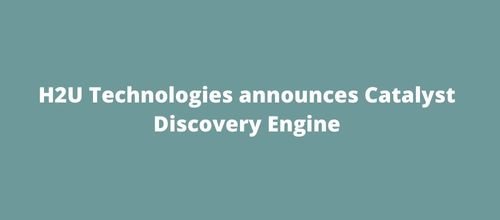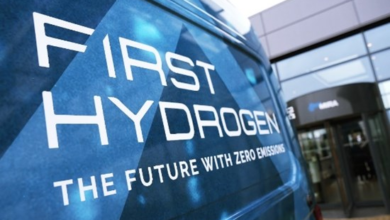H2U Technologies announces Catalyst Discovery Engine
Our Catalyst Discovery Engine is a breakthrough in testing and identifying non-PGM catalyst materials.

H2U Technologies, Inc. announced Catalyst Discovery Engine (CDE), advancing the identification of catalyst alternatives to costly and scarce iridium and other rare platinum group metals (PGM) used in electrolyzers to produce hydrogen.
H2U’s CDE can make and test readily available catalyst materials 10,000 times faster than any other method. This breakthrough in speed is significant as the planet has only about one-tenth the iridium it needs to meet the rapidly growing global demand for hydrogen electrolyzers.
The catalysts are a key element of the hydrogen production process. H2U is leveraging its CDE to develop a suite of novel catalysts that could replace expensive, rare materials like iridium.
The CDE is a rapid screening process developed over ten years at the California Institute of Technology (Caltech) through a $122M Department of Energy (DOE) grant. This data-driven, high-throughput process allows scientists to make, characterize, and quantify thousands of material compositions per week’s catalytic activity.
H2U has analyzed hundreds of thousands of compounds to discover and develop dozens of viable non-iridium electrocatalysts formed into membrane electrode assemblies (MEAs) and cells. These materials — with readily available domestic supplies — have been tested and proven under typical PEM electrolyzer operating conditions both in-house and in third-party evaluations. With this initial progress, H2U has demonstrated its excellence in catalyst discovery and the value-add it brings to the future of the electrolyzer industry.
Mark McGough, CEO of H2U Technologies, said, “With our CDE and non-iridium electrolyzers, H2U Technologies offers a clear pathway for the hydrogen industry to scale quickly without facing bottlenecks due to a lack of material supply or volatile, high costs.”
Katherine Rinaldi, Director of Government Affairs, said, “Using the CDE, H2U will continue to develop and improve its collection of low-cost, non-iridium catalyst alternatives.”
